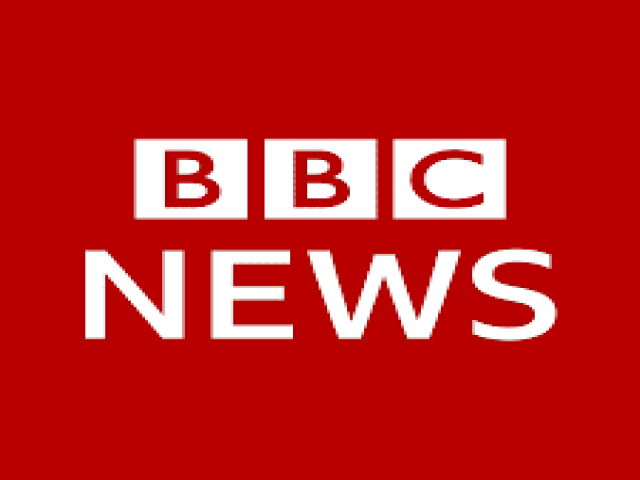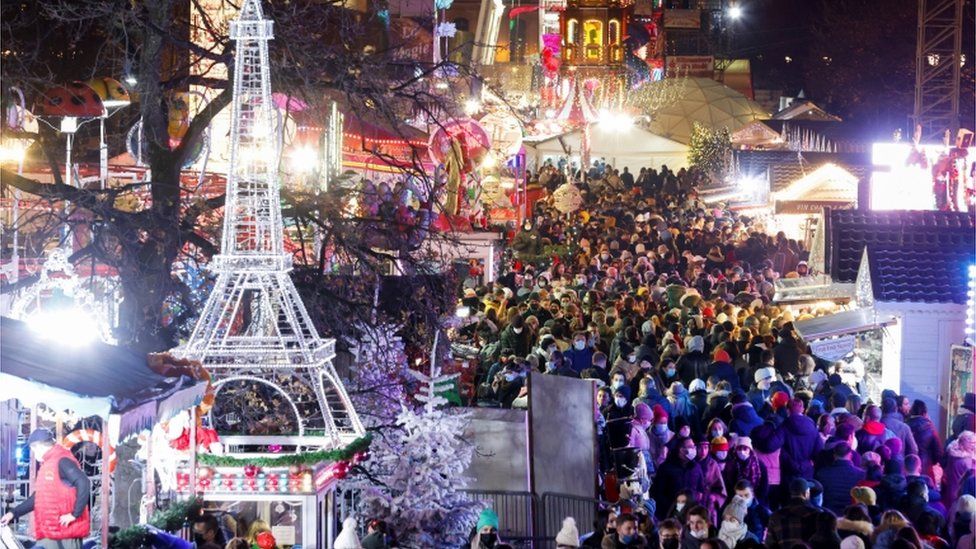Peng Shuai: China says tennis star case maliciously hyped up

Ms Peng disappeared from the public eye for almost three weeks after making sexual assault allegations against China's former vice premier, triggering widespread international concern.
She has since re-appeared, but questions remain over her wellbeing.
On Tuesday, China's foreign ministry said it was "not a diplomatic matter".
"I believe you have all seen that she recently attended some public events and had a video call [with the president of the International Olympic Committee]," spokesman Zhao Lijian told reporters.
"I think some people should stop deliberately and maliciously hyping [the issue] up, let alone politicise this issue," he said.
Ms Peng, 35, is one of China's top tennis players. In a 1,600-word post on Chinese social media platform Weibo earlier this month, she said former Vice Premier Zhang Gaoli - who is 75 - had "forced" her to have sexual relations with him.
"Even if it's just striking a stone with a pebble, or a moth attacking a flame and courting self destruction, I will tell the truth about you," she wrote.
Peng Shuai: What we know so far
How China censored a tennis star
It was the first time such an allegation had been made against one of China's senior political leaders. Mr Zhang has not responded to the allegations.
After sharing her post on Weibo, the tennis player was not heard or seen publicly for several weeks. Her safety became a matter of international concern, with prominent players including Serena Williams and Naomi Osaka joining calls from governments and tennis officials demanding to know she was safe.
The outcry prompted Chinese state media to release a series of photographs and videos that appeared to show all was well.
Over the weekend, Ms Peng had a video call with the head of the International Olympic Committee, after which a statement from the group said she had appeared safe and well. A state media journalist also posted a video clip he said was from Sunday that showed her smiling and standing with officials at a tennis tournament.
But concerns over Ms Peng's safety and wellbeing remain.
The Women's Tennis Association (WTA) has said the recent videos "don't alleviate or address... concern about her wellbeing and ability to communicate without censorship or coercion".
Media caption,
WTA chairman 'worried about Ms Peng's safety'
Human Rights Watch criticised the IOC over the video call, saying its "collaboration" with Chinese authorities on Ms Peng's reappearance "undermines its expressed commitment to human rights, including the rights and safety of athletes".
There have also been calls from athletes for a special delegation of international organisations and human rights experts to meet Ms Peng and assess her safety.
On Sunday, a rally was staged by a group of Chinese feminists in New York in support of Ms Peng.
Event organiser Crystal Chen told the BBC that while the released videos and photos appear to show Ms Peng "physically unharmed", she was "not truly free".
Ms Peng disappeared from the public eye for almost three weeks after making sexual assault allegations against China's former vice premier, triggering widespread international concern.
She has since re-appeared, but questions remain over her wellbeing.
On Tuesday, China's foreign ministry said it was "not a diplomatic matter".
"I believe you have all seen that she recently attended some public events and had a video call [with the president of the International Olympic Committee]," spokesman Zhao Lijian told reporters.
"I think some people should stop deliberately and maliciously hyping [the issue] up, let alone politicise this issue," he said.
Ms Peng, 35, is one of China's top tennis players. In a 1,600-word post on Chinese social media platform Weibo earlier this month, she said former Vice Premier Zhang Gaoli - who is 75 - had "forced" her to have sexual relations with him.
"Even if it's just striking a stone with a pebble, or a moth attacking a flame and courting self destruction, I will tell the truth about you," she wrote.
Peng Shuai: What we know so far
How China censored a tennis star
It was the first time such an allegation had been made against one of China's senior political leaders. Mr Zhang has not responded to the allegations.
After sharing her post on Weibo, the tennis player was not heard or seen publicly for several weeks. Her safety became a matter of international concern, with prominent players including Serena Williams and Naomi Osaka joining calls from governments and tennis officials demanding to know she was safe.
The outcry prompted Chinese state media to release a series of photographs and videos that appeared to show all was well.
Over the weekend, Ms Peng had a video call with the head of the International Olympic Committee, after which a statement from the group said she had appeared safe and well. A state media journalist also posted a video clip he said was from Sunday that showed her smiling and standing with officials at a tennis tournament.
But concerns over Ms Peng's safety and wellbeing remain.
The Women's Tennis Association (WTA) has said the recent videos "don't alleviate or address... concern about her wellbeing and ability to communicate without censorship or coercion".
Media caption,
WTA chairman 'worried about Ms Peng's safety'
Human Rights Watch criticised the IOC over the video call, saying its "collaboration" with Chinese authorities on Ms Peng's reappearance "undermines its expressed commitment to human rights, including the rights and safety of athletes".
There have also been calls from athletes for a special delegation of international organisations and human rights experts to meet Ms Peng and assess her safety.
On Sunday, a rally was staged by a group of Chinese feminists in New York in support of Ms Peng.
Event organiser Crystal Chen told the BBC that while the released videos and photos appear to show Ms Peng "physically unharmed", she was "not truly free".

Covid-19: Omicron spreading at lightning speed - French PM
- The Omicron variant is "spreading at lightning speed" in Europe and will likely become dominant in France by the start of next year, French Prime Minister Jean

Boris and Carrie Johnson announce birth of baby daughter
- Prime Minister Boris Johnson is joined by his wife Carrie on stage after delivering his keynote speech at the Conservative Party

WHO chief worried about ‘tsunami’ of omicron, delta cases
- The head of the World Health Organization said Wednesday that he’s worried about the omicron and delta variants of COVID-19 producing a “tsunami”

Anger as Cambodia’s Hun Sen meets Myanmar military leader
- Cambodian Prime Minister Hun Sen’s visit to Myanmar seeking to revive peace efforts after last year’s military takeover has provoked